AMMAN, Jordan – At a nearby garment factory, rows of workers sit elbow‑to‑elbow, cutting and stitching fabric in perfect harmony. Between the machines’ sharp, steady hiss, softer sounds slip through: a shaky breath, a voice‑note about a feverish child, a whispered hope that this month’s pay will stretch far enough. Most operators balance two worlds—stitching fast here while thinking about children, rent or parents far away. When those worries pile up, stitches slow and tempers rise.
In 2021, Better Work Jordan asked a simple question: could small, everyday support help workers breathe easier and feel more supported every day? The initiative to answer that question began. Factories set aside quiet spaces, trained volunteer peer leaders and made check‑ins as routine as the lunch bell.
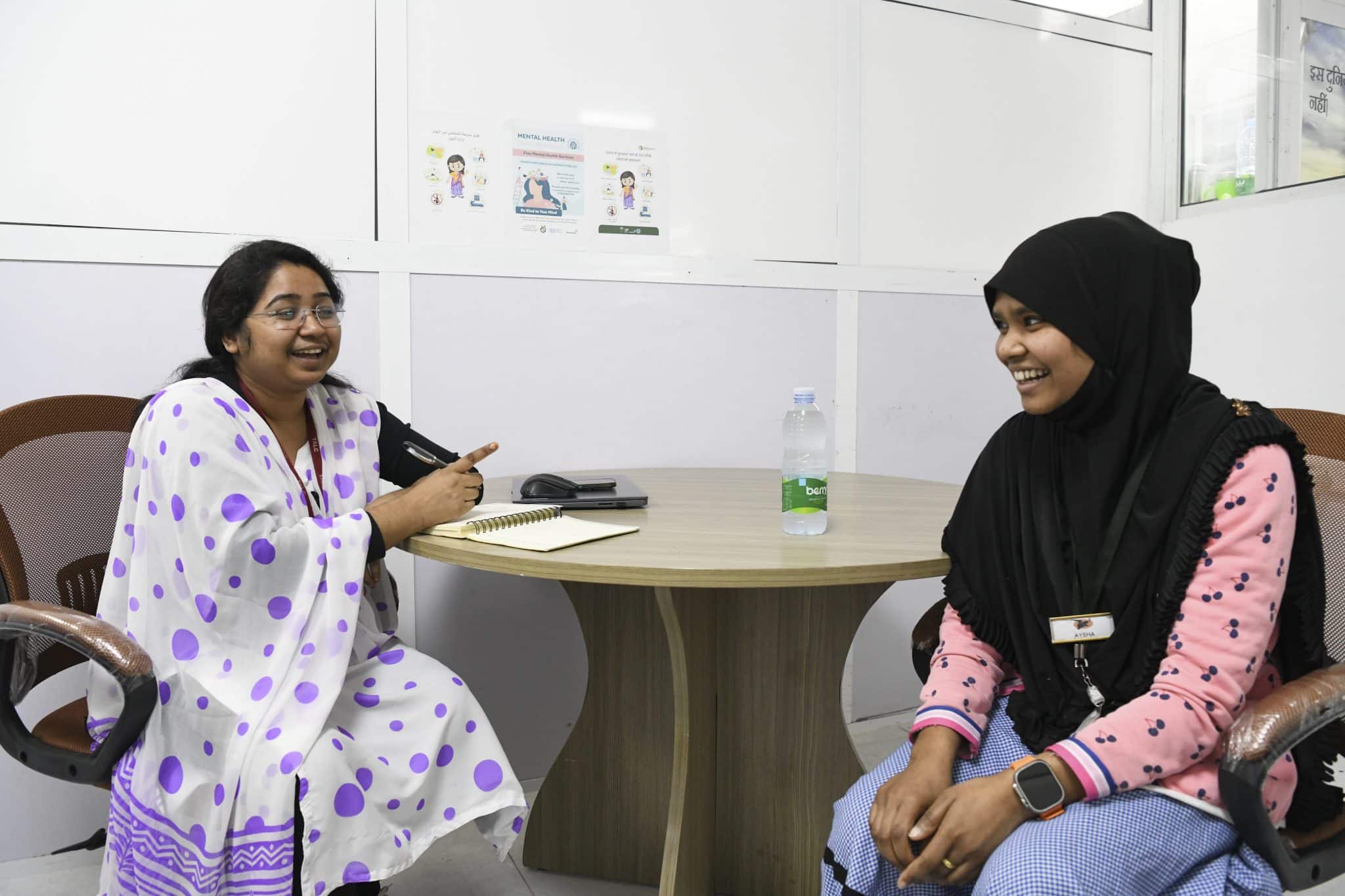
Aysha, 24, remembers her first night after leaving her Bangladeshi village. She cried herself to sleep until the room leader at her dormitory slipped her an extra blanket, cracked a joke and promised to walk her to work. A mental‑health focal point kept showing up with card games and tea. “They told me, ‘We’re your family now,’ and I believed them,” Aysha says. Months later, a crisis back home left her sleepless and skipping meals. Counsellors sent her to the factory doctor for medicine and taught her breathing drills. By mid‑week her appetite was back and her stitch count on target. “If this help wasn’t here, I’d have gone home and maybe never come back.”
In another factory, Sri Lankan operator Sanduika felt the pull of home too. “It was like half of me stayed in Sri Lanka,” she laughs. A break‑up pushed her into a spiral of worry, so she used the quiet room to vent and practice new coping tricks. Now she greets newcomers at the hostel gate. “Being away is hard, but we stick together,” she tells them. “You’re not alone.”
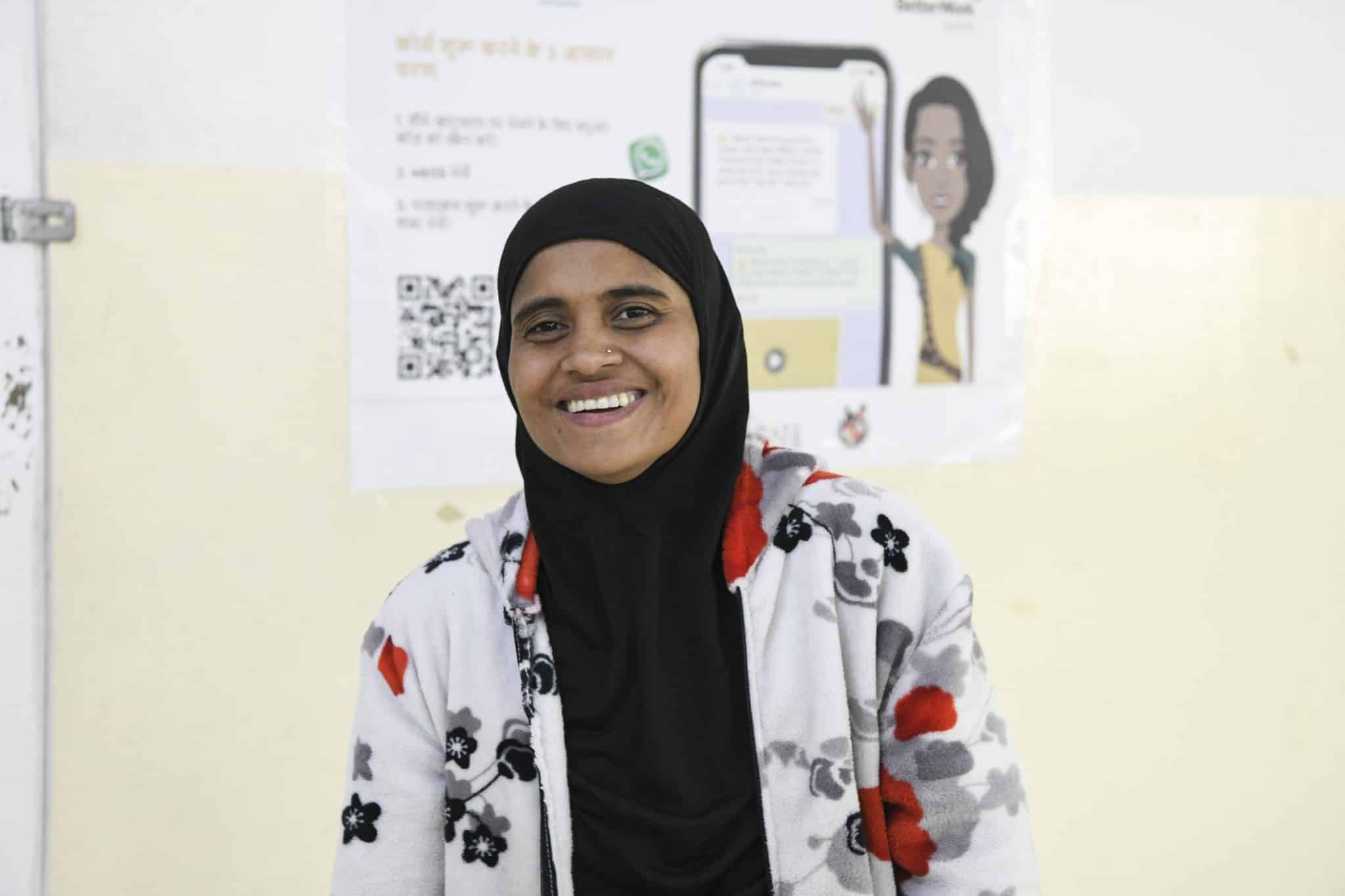
Stress sometimes hides in plain sight. One morning Shahnaz, a usually calm line worker, froze at her machine—unable to remember where she was. Some co‑workers whispered about spirits. HR manager Jashim saw something else: a panic collapse triggered by financial stress and bad news from home. In order to receive adequate medical care and observation, Shahnaz spent eight days in hospital, then returned on lighter duties. “Sending her home would have cost a month of recruitment and training,” Jashim says. “More important, we kept a good team‑mate and showed everyone their wellbeing matters.”
Keeping an eye out has become part of the job. Welfare officer Heba walks each line at the start of shift. “If a girl keeps her head down or skips her lunch, I make a note,” she says. Often a chat over mint tea is enough; other times she links the worker with the doctor or an outside clinic.
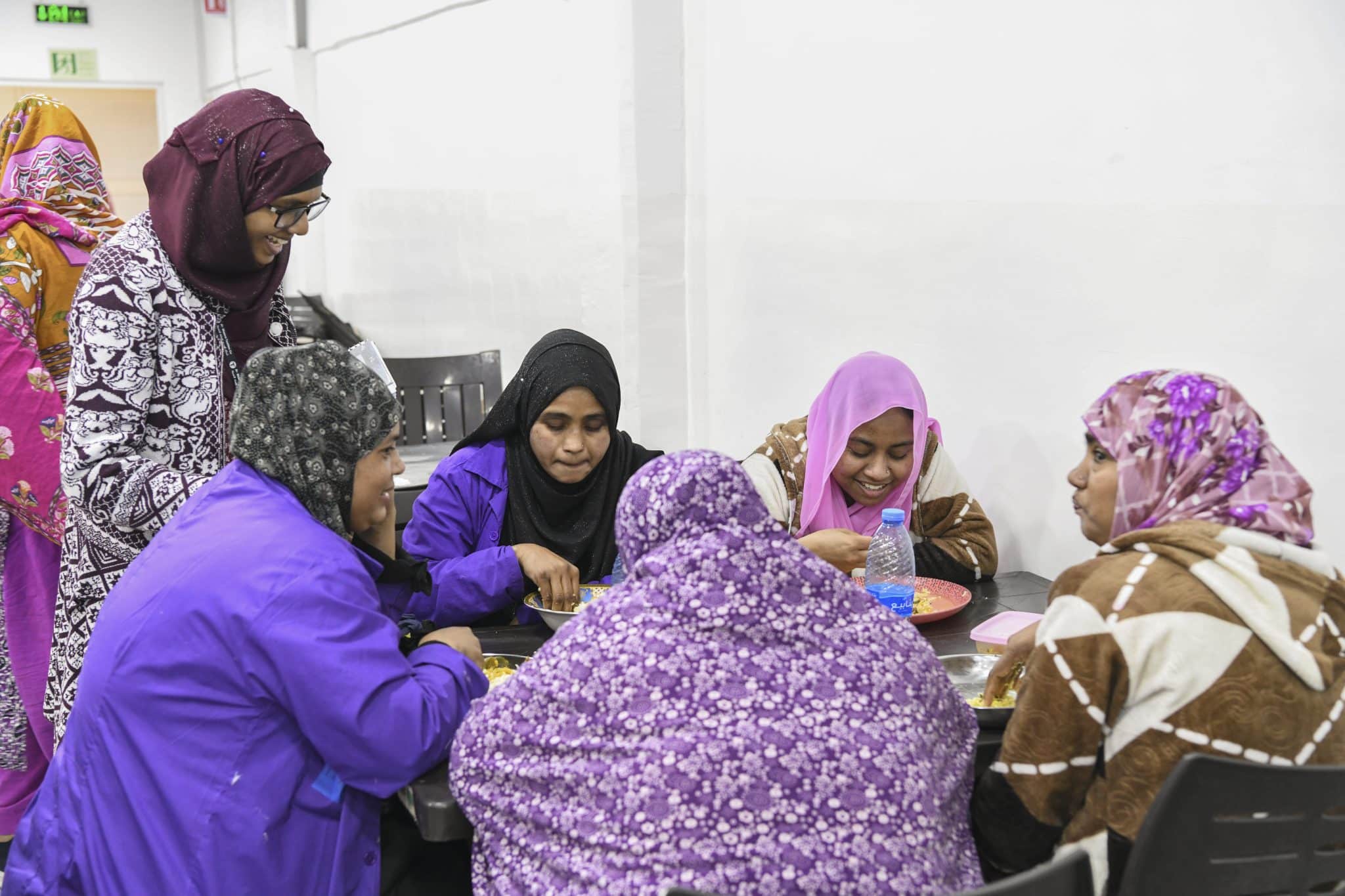
Diba, a Bangladeshi peer leader, runs six‑woman circles after supper. “At first they thought counselling was for crazy people,” she grins. “Now they ask me when the next circle is because they sleep better after talking.”
At first, they thought counselling was for crazy people. Now they ask me when the next circle is because they sleep better after talking
Factories also break tension with short bursts of fun—ten‑minute trivia quizzes, pre‑lunch stretches, mini dance parties. “Those five minutes make you forget the noise,” says Jordanian supervisor Nisreen, who once thought mental health “was something doctors do, not factories.” Evening picnics, karaoke and sing‑alongs give counsellors another chance to notice who might need help; anyone who keeps to herself gets a gentle knock on the door.
These interventions alleviate stress, but there is no simple fix to the challenges that garment workers in Jordan face. The nature of the work is demanding and repetitive. Migrant workers wrestle with homesickness and the strain of long‑distance ties with children and spouses, while local staff juggle rising grocery prices, marital problems and ageing parents. Heba reminds supervisors, “We’re working with people, not machines.” It’s helpful to have that human perspective not just for workers, but for the work itself. An hour of listening, she says, often saves a whole day of slow‑downs.
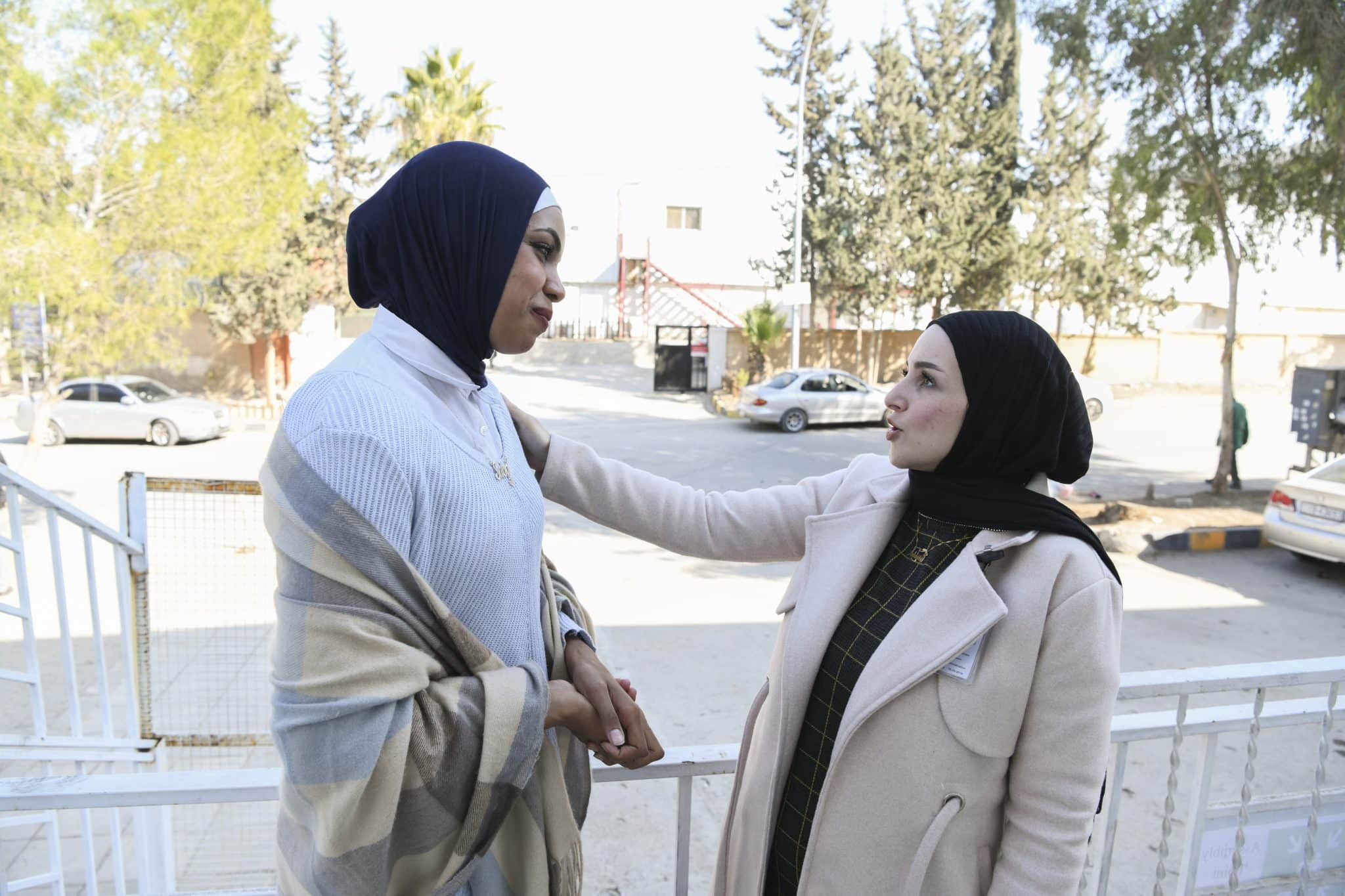
One afternoon Samah, 26, walked into HR clutching a resignation letter. Since her mother’s passing the previous year, she had felt adrift— “I lost my purpose,” she would later admit—and daily tensions both at home and on the line convinced her there was nothing left for her here. Counsellor Tasneem invited her to sit, breathe and talk. As Samah let the tears fall, Tasneem listened and introduced simple tools: steady‑breathing drills, a quick walk when thoughts crowded in, and a nightly gratitude note. She helped Samah see her own worth again and set two reachable goals—retake her high‑school exam and learn to drive. Tasneem even offered to study with her after hours and still sends short check‑in texts: “Samah, how are you?” The resignation letter went through the shredder, and Samah now mentors newer colleagues on protecting their confidence and setting healthy limits.
Tasneem studied counselling at Yarmouk University and was working reception when management asked if anyone understood mental health; she stepped forward and never looked back. “Support isn’t just venting,” she says. “It’s guiding, following up and saying, ‘Come back whenever you need.’” She helped name the counselling room the “Happy Room” and trains supervisors to start with gentle questions: “Are you eating? Are you sleeping?” Workers often ask production managers, “Where’s Tasneem? We need her.”
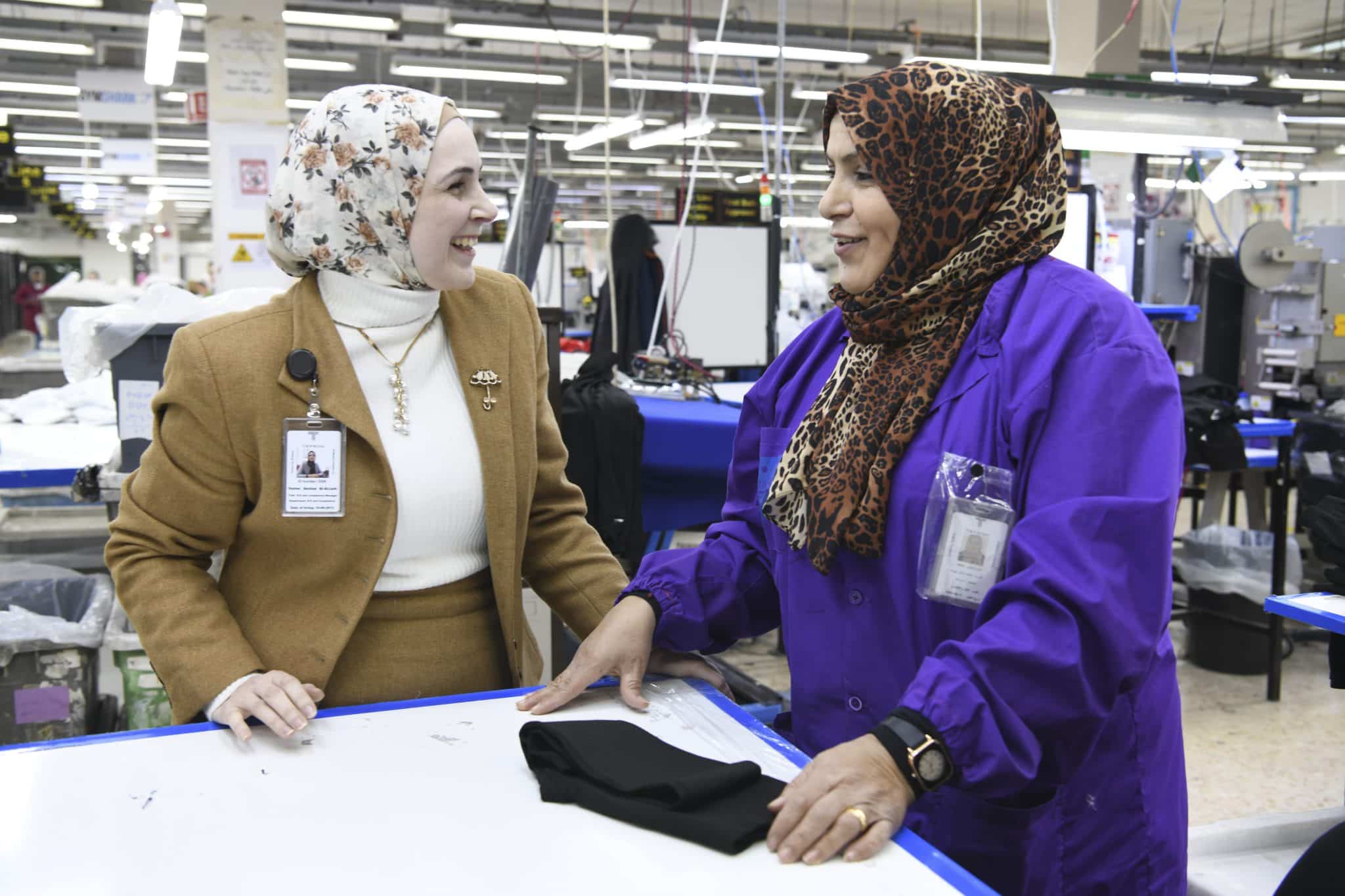
Since the programme began, line chiefs see fewer flare‑ups. A quiet Bangladeshi operator now leads the morning warm‑up. A Jordanian mother who once collected weekly warnings hasn’t had one in a year. Compliance manager Asmaa estimates that before, almost half of slow‑downs came from stress. “Give someone space to breathe and the work flows again,” she says.
Garment work will always be fast, but an open door, a caring ear and five minutes of fun keep both people and production moving. The hum of machines hasn’t changed, yet the question echoing between them has shifted: from “What’s wrong with her?” to “How can we help?” That simple change, workers agree, is the real thread holding everything together.